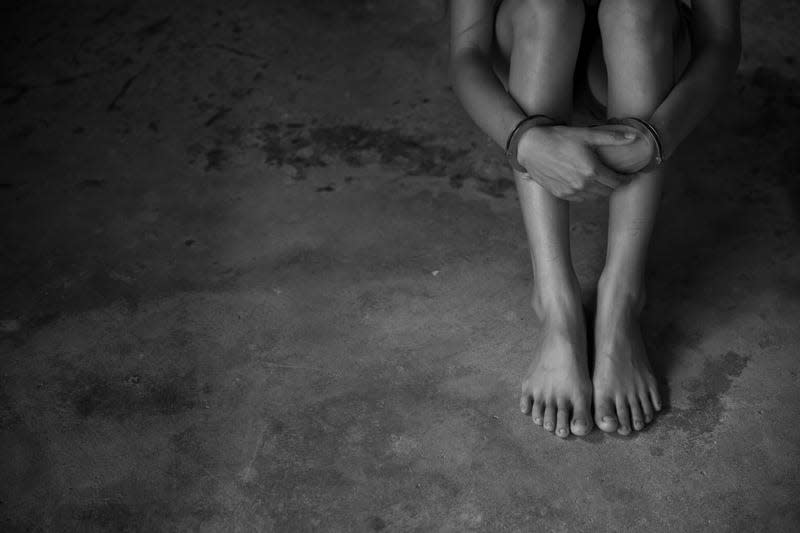How Prosecutor's Weaponized a Battered Woman's Abuse Against Her (Part 6)

This story was originally published by Mother Jones Magazine.
On the fourth day of the trial, King took the stand, hoping to finally share her side of the story. But during the cross-examination, McAmis “got under Kerry’s skin,” her attorney Brian Boeheim says. “And that nice, sweet girl that was testifying got angry and got snippy with the prosecutor. That was it for the jury. They saw her as someone who could be aggressive and could allow somebody to do this to a child.”
Read more
Testifying can be an agonizing experience for survivors of domestic violence, forcing them to recall painful moments in vivid detail. Prosecutors sometimes use the same intimidation tactics that abusers employ, retraumatizing them. McAmis suggested that King was dishonest because a few parts of her testimony did not perfectly match statements she’d made immediately after the assault; decades of research show that some survivors can recall certain moments of abuse in great detail but, because of the fear response in their brains, may have only fragmented memories of other moments.
Throughout her questioning, McAmis often framed the abuse King had endured as evidence that she’d been a bad mother to her children. “Were they having fun after they saw you get pistol-whipped and the blood gushing from your head?” the prosecutor asked her, referring to the night when Lalehparvaran shot up their home while the kids were inside. And when King brought up the ways she had also been a victim, McAmis suggested she was unsympathetic to her daughter’s injuries. “Are you telling this jury you have had a more traumatic experience than what Lilah experienced that night?” McAmis asked, referring to Purdy’s beating. “Surely you are not minimizing what your daughter went through?” she added later. (McAmis did not respond to requests for comment.)
McAmis’ approach, says the ACLU’s Lambert, is “heartbreakingly indicative of the attitude behind failure to protect. Prosecutors are using this tool for the noble purpose of protecting children from child abuse, but with the horrific method of criminalizing and vilifying the nonabusive parent who is often the victim of that same abuse.”
Before King left the stand, she kept looking over at the judge, wondering, Are you for real gonna let her say these things to me?
“This is exactly what survivors fear will happen when they tell someone they are abused,” Lambert adds. “To not be believed, and even worse to be blamed.”
During closing statements, McAmis focused on how Purdy repeatedly called King from jail and King kept talking to him.
“Those jail phone calls, they’re disgusting,” McAmis told the jurors. Then she mockingly offered her interpretation of King during the calls: “‘Bummer for you, Lilah. Mommy is still in love. You’re on your own, kid.’” On the phone with Purdy, King said she loved him and even wanted to have another child with him.
That “sunk the ship,” Boeheim, her attorney, recalls. “You could just see the jury fold up.”
Boeheim had tried to tell the jury that during the calls, Purdy incessantly begged King to say she loved him and threatened to hurt her if she didn’t. At one point he said he’d take the baby away if King didn’t stay in a relationship with him. According to a court document, he said he’d shoot bullets at her kids, kidnap her, tie her up, and rape her:
Tell me you love me. When I get out of here I’m going to drop kick you. I’m going to kick your teeth in. I’m just kidding, baby. I’m just kidding. Tell me you love me. You want to marry me. Come on, just go run down to the courthouse and you can marry me. You can marry me. Come on, we’re soulmates. Tell me you love me. I’ve got to hear you love me. I’ll carve your face. I’ll carve my initials in your face. Come on, you know I’m just joking, baby.
King talked with Purdy initially because she “wanted to understand why he did what he did,” she tells me. She doesn’t know why she kept talking with him after that. But experts say it’s not uncommon for survivors to continue engaging with their abusers, and that it can be difficult to cut ties. “I really thought I loved him,” she says.
During his closing statement, Boeheim tried one last time to convince the jury that his client did not deserve punishment because she had not been the true perpetrator. “He’s the monster. He’s the predator,” he said of Purdy.
But he may have been fighting an uphill battle. In Oklahoma, “juries are extremely punitive toward women who have children being hurt in their home,” McCarty, the attorney who has worked on commutations, tells me. “It’s a cultural more, especially in the South or the Midwest, that our job as women is to take care of our children.”
Next: In Part 7, the jury announces a verdict.
More from The Root
Sign up for The Root's Newsletter. For the latest news, Facebook, Twitter and Instagram.

